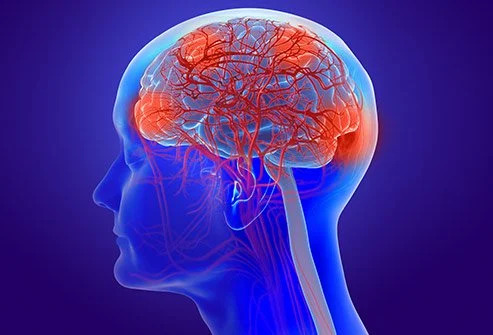Preventive Healthcare
Metabolic Encephalopathy: Types, Symptoms, Causes, Diagnosis and Treatment
92732 Views
0

Abnormalities in brain function are not common disorders. People may go through such conditions for various reasons, like genetic disorders, structural damage, a side effect of medication, or as a result of systemic illness. One such type of brain dysfunctionality is known as metabolic encephalopathy. It is primarily a result of an underlying illness such as renal failure, heart disease, diabetes, and liver disease. This condition is reversible if the systemic illness is treated well. However, the condition may result in temporary or permanent brain damage if ignored.
Metabolic encephalopathy is commonly defined as an alteration in consciousness caused due to brain dysfunction (due to impaired cerebral metabolism). People with this condition often experience a changed mental state. They may feel confused and overwhelmed and act differently than their normal behavior. Therefore, it is essential to identify, diagnose, and treat this condition in time. To help you understand metabolic encephalopathy, we have listed all the necessary information, including its types, causes, symptoms, and treatment.
What is Metabolic Encephalopathy?
In simple words, metabolic encephalopathy is a disorder that affects brain function. It can be temporary or permanent, depending on the severity of the damage. This condition is mainly caused by other severe health concerns. These problems affect electrolytes and blood chemicals in the body, resulting in brain cell damage. It is a severe health condition that can cause structural brain damage if not treated well.
Types of Metabolic Encephalopathy
Metabolic encephalopathy is categorized into two types depending on the severity of the condition: acute and toxic.
- Acute Metabolic Encephalopathy is caused by a deficiency of vitamins, oxygen, or glucose. It is mostly reversible and can be controlled with medication and suitable treatment.
- Toxic Metabolic Encephalopathy is caused by toxins, infection, organ dysfunctionality, or organ failure. It is a comparatively serious health condition. It needs urgent medical supervision and treatment. In some cases, patients may not recover completely.
While Metabolic Encephalopathy affects everyone differently, here are some common signs and symptoms.
Symptoms of Metabolic Encephalopathy
Symptoms may vary depending on the type of encephalopathy you have.
- Delirium - Confused thinking and less attention span. It is a serious health concern and needs immediate attention
- Lethargy - Caused by a lack of nutrition and a high level of toxins in the body
- Muscle weakness
- Loss of memory or dementia
- Difficulty in motor tasks such as walking, eating, writing, etc., is also known as ataxia
- Illusions
- Hallucinations
- Decreased consciousness
- Mood disorders
- Breathing problems
- Mental health issues such as depression, anxiety
- Vision problems
- Seizures
Causes of Metabolic Encephalopathy
Pre-existing health issues or chronic illnesses such as diabetes, liver dysfunction, heart disease, and kidney failure are the primary causes of metabolic encephalopathy. These health problems result in the accumulation of toxic elements in the body, which affects the brain cells.
Here are some risk factors that result in metabolic encephalopathy.
- Exposure to toxic chemicals can lead to brain cell damage, exacerbating brain dysfunction
- Certain medications disturb blood chemicals, resulting in brain damage
- Illicit drugs affect brain function
- Organ failure
- Dehydration and malnutrition greatly contribute to brain dysfunctionality
- Excessive alcohol consumption could damage brain cells, leading to metabolic encephalopathy
- Thiamine deficiency
- High blood pressure affects the neurological system, resulting in brain damage
- Severe and constant fever
Diagnosis of Metabolic Encephalopathy
Generally, doctors first conduct a physical exam to understand the signs and symptoms of metabolic encephalopathy in an individual. Then they suggest undergoing a blood test, a urine test, CT and MRI scans, electroencephalography, etc., depending on the patient's specific health problems.
Treatment of Metabolic Encephalopathy
An essential step in treating metabolic encephalopathy is treating the underlying illness. Further treatment and medication are determined according to the symptoms and signs of the patient. Usually, the treatment involves recovering the deficiencies, like vitamins. Doctors may also suggest living in a stress-free environment. Some patients may need treatment to control ammonia levels in the blood. Diet modifications are also required to treat metabolic encephalopathy.
The Bottom Line
Metabolic encephalopathy is a critical health condition and needs immediate attention. But proper diagnosis and correct treatment can help patients lead a better life. We at Metropolis help you get an accurate diagnosis with various tests. Register your profile and book a spot urine test today.























 WhatsApp
WhatsApp